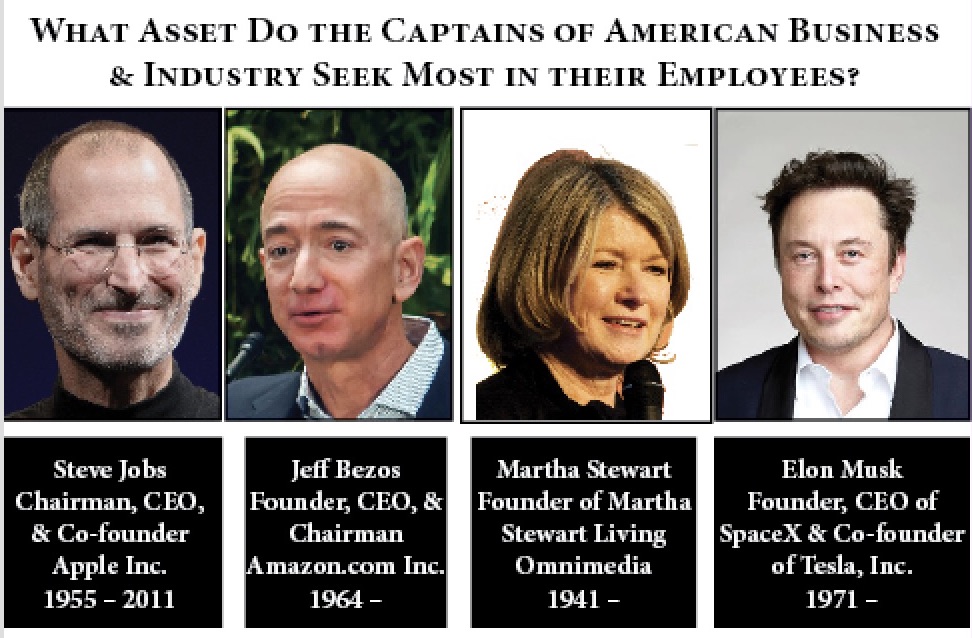
In Arthur Miller’s celebrated play Death of a Salesman (1949) Willy Loman, the main character expresses what would become a popularly accepted measure of success:
The man [Willy’s brother Ben] knew what he wanted and went out and got it! Walked into a jungle and comes out, the age of 21, and he’s rich! … The man who makes an appearance in the business world, the man who creates personal interest, is the man who gets ahead. Be liked and you will never want.
In the decades that followed, a series of plays and books emerged, promoting the idea that people skills count more than brains for success in the workplace. Today, many believe that success in business and industry is more closely connected to our so-called interpersonal skills than to our IQ. Emotional intelligence (EI or EQ) as defined by researchers Mayer and Salovey, is “the ability to monitor one’s own and others’ feelings and emotions, to discriminate among them, and to use this information to guide one’s thinking and actions.”
The concept of emotional intelligence had its roots in the work of Harvard psychologist Howard Gardner, who objected to the use of IQ as a single measure of intelligence, arguing that it excludes other cognitive abilities such as innate social skills, athletic potential, and musical ability that contribute to an individual’s success in life. In his seminal book Frames of Mind: The Theory of Multiple Intelligences, published in 1983, Gardner proposed that EQ is, along with IQ, an innate part of intelligence. By the end of the 20th century, the concept of EQ had gathered momentum and in 2000, Dr. Thomas J. Stanley published the results of his survey of 733 millionaires, soliciting their opinions regarding the most important elements in achieving success in business. Among the factors he investigated were “social skills” and “intellectual orientation.” In The Millionaire Mind, he reported his findings:
Far too many of us believe that success is predetermined, a direct result of genetics, and that successful people just have higher IQs than those who are “less successful.” So what if you receive all As in school and near-perfect SATs? So what if your IQ is in the ozone layer of the intelligence scale? Will these factors assure you of a place among the ranks of America’s millionaires?” It’s doubtful if you don’t get along with people. … The large sample of millionaires surveyed were asked about the importance of intellect in explaining their economic success … Only 20% felt that “having a high IQ or superior intellect” was very important … while 56% felt that getting along with people was very important.
By the dawn of the 21st century, the link between people skills and success in America had been forged in the public conscious. Though we recognize that the concept of EQ as a form of intelligence has a “truthiness,” associated with it, we must dig a little deeper to investigate what assets are the captains of business and industry in corporate America really seeking in their hires. Let’s ask them?
In 1993, Forbes journalist Richard Karlgaard, in a conversation with Bill Gates asked, “What Microsoft competitor worries you most?” Without hesitation, Gates responded, “Goldman Sachs.” When Karlgaard responded with surprise that Gates named an investment banking company rather than a computer company, Gates clarified:
Software is an IQ business. Microsoft must win the IQ war, or we won’t have a future. I don’t worry about Lotus or IBM, because the smartest guys would rather come to work for Microsoft. Our competitors for IQ are investment banks such as Goldman Sachs and Morgan Stanley.
Indeed, the competition for the best and brightest is a war fiercely waged by the best companies in the hi-tech fields, because these high IQ cognoscenti are the only people capable of pushing innovation to new heights. In 2005, a dozen years after his conversation with Bill Gates, Karlgaard reported:
I spent five days traveling the country with Gates, and he must have talked about IQ a hundred times. Getting the brightest bulbs to work at Microsoft has always been his obsession. It’s paid off. Microsoft does close to $40 billion in sales and has some 60,000 employees. That’s a whopping $650,000-plus of revenue per employee, topping IBM’s sales per employee twofold.
Along comes Google, with its revenue run rate of $6 billion and about 4,000 employees. Google’s sales per employee are $1.5 million, or 2.3 times that of Microsoft. This is like comparing Babe Ruth to Home Run Baker. Google now beats Microsoft in the IQ war.
Steve Jobs, founder of Microsoft’s major competitor, Apple Inc. explained in an interview with Business Week on October 12, 2004, one of the secrets of his success in hiring employees.
I noticed that the dynamic range between what an average person could accomplish and what the best person could accomplish was 50 or 100 to 1. Given that, you’re well advised to go after the cream of the cream … A small team of A+ players can run circles around a giant team of B and C players.
Jeff Bezos echoed the comments of Gates and Jobs in emphasizing the importance of IQ as the most vital element sought in Amazon’s recruitment and hiring of their top people. Biographer, Leibovich observed:
The philosophies Bezos applied at Amazon follow a principle he has long embraced: Intrinsic ability [IQ] rules, trumping acquired skills [EQ] and accumulated experience.
In a 2014 interview, Elon Musk, when asked, “When you hire people, what skills do you want them to have?” responded, “What I’m really looking for is evidence of exceptional ability.”33 If we were to sample most of the top corporations today, including investment companies as well as hi-tech innovators and lower tech retailers, we would get similar responses.
